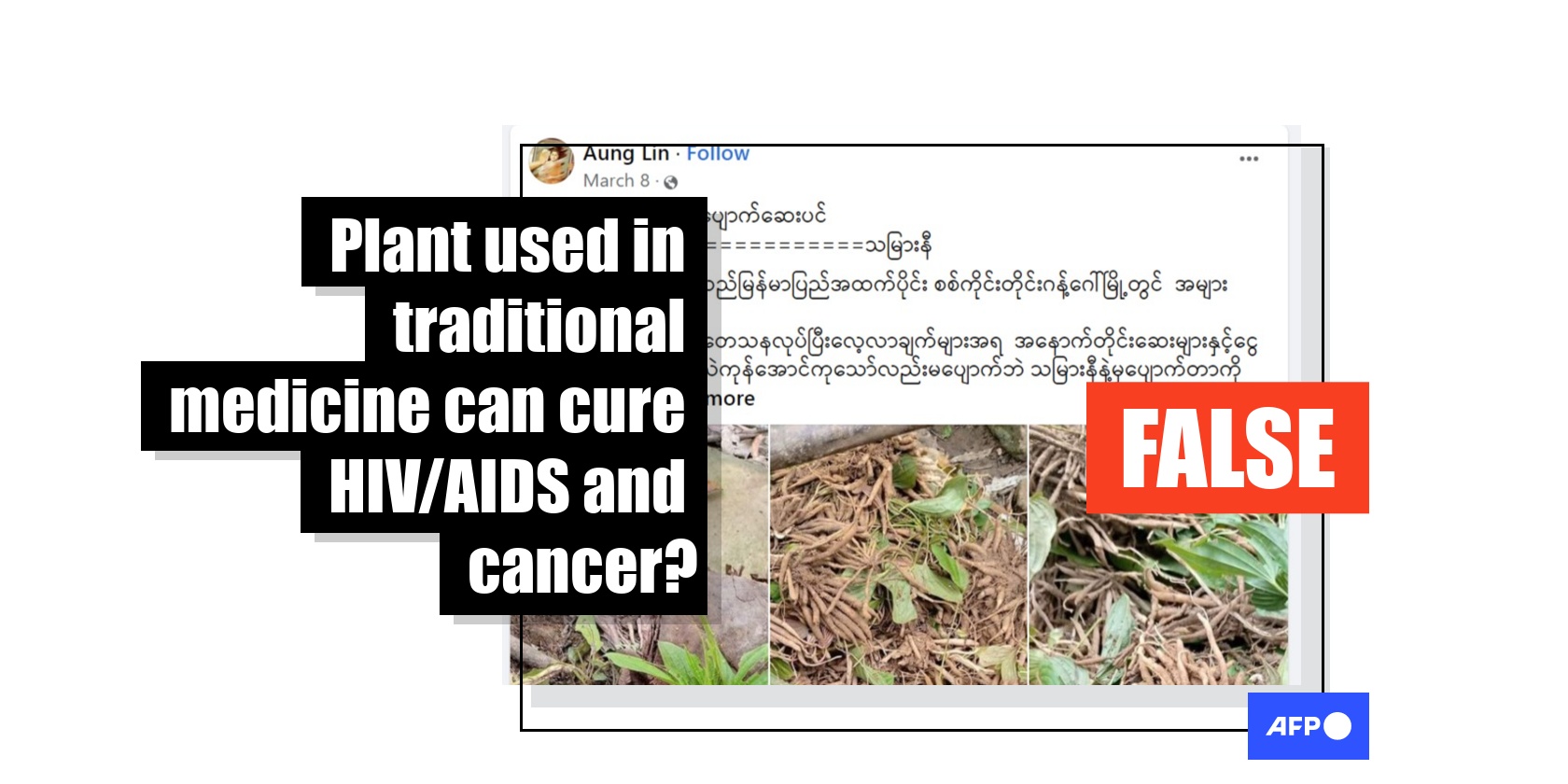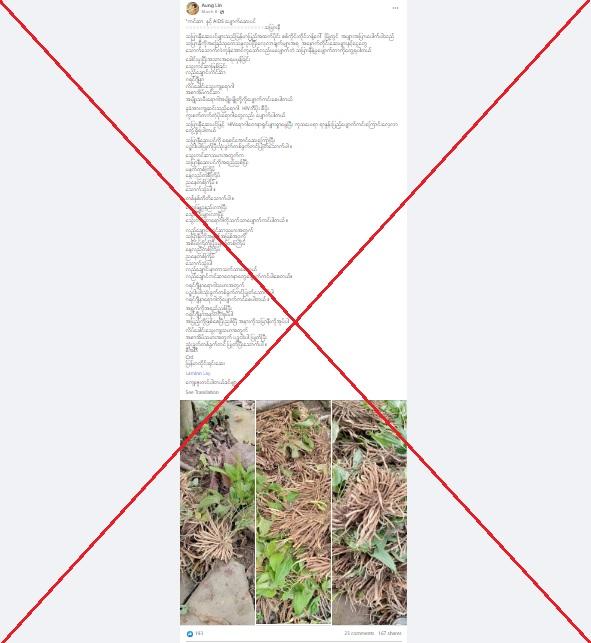
Post falsely claims consuming 'Stemona Curtisii Hook' plant can 'cure HIV/AIDS and cancers'
- This article is more than two years old.
- Published on April 28, 2023 at 10:44
- 3 min read
- By AFP Thailand
The false Burmese-language post was published on Facebook here on March 8, 2023. It has been shared more than 160 times.
It translates to English in part as: “It (Stemona curtisii Hook plant) cures dizziness and skin disorders, leukemia, throat cancer, fistula, hemorrhoidal anemia, stomach cancer, and all kinds of women's diseases.
“The ‘tha-myar-ni plant can cure HIV, Hepatitis B, Hepatitis C virus and all infectious diseases”, it goes on to say, using the plant's Burmese-language name 'tha-myar-ni.
“It has been observed that 100 percent of patients with HIV disease have been cured when they are treated with ‘tha-myar-ni.
“Clean the plant with water and boil all parts of the plant then drink it. The result is white blood cells decrease, red blood cells increase, and leukemia is cured.”
The post also shared three photos of what appear to be a Stemona curtisii Hook plant.

There is currently no effective cure for Human Immunodeficiency Virus (HIV), as explained here by the US Centers for Disease Control and Prevention (CDC) and here by the World Health Organization (archived links here and here).
The virus attacks the cells in the body that help fight infections and diseases and can lead to Acquired Immunodeficiency Syndrome (AIDS). It is primarily contracted during unprotected sex and can be fatal.
Similar false posts also have been widely shared on Facebook here and here in 2021, and here in 2022.
In response to the posts, medical experts told AFP that consuming Stemona curtisii Hook plant cannot cure HIV/AIDS or any of the listed diseases.
"There is no evidence to support the claim that consuming Stemona Curtisii Hook plant can cure disease," a CDC representative told AFP via email on April 6, 2023.
"The CDC continues to recommend widely proven and scientifically accepted methods of treating and preventing HIV and cancer. While HIV cannot be cured, it can be controlled with proper care."
Dr Thurein Hlaing Win, country manager of Myanmar-based healthcare website Hello Sayarwon, also told AFP that there is no proven evidence that the plant can cure HIV/AIDS and cancers.
"Although there are some claims that this particular plant is useful in treating chest and cough complaints, there is no scientifically proven evidence that it can actually cure HIV/AIDS and cancer," he said in an email on April 20, 2023.
"There might be some benefits for sure but I don't think it can cure cancers, hepatitis, and AIDS from my professional point of view."
The post also falsely claims that consuming the Stemona curtisii Hook plant can cure leukemia as it decreases white blood cells, and increases red blood cells.
According to CDC, the best treatment for any cancer depends on the type and severity of the disease.
This CDC article about cancer treatments states that the disease can be treated in various ways including surgery, special medication and stem cell transplant that replaces "bone marrow cells lost due to very high doses of chemotherapy or radiation therapy."
Lack of research
Health experts from Meedan, a non-profit organisation that tracks health misinformation, said studies conducted on the Stemona curtisii Hook plant were too limited to conclude whether or not it can treat general health conditions.
"These studies are limited and not sufficient to conclude that any type of this species is useful for addressing any health condition," the organisation told AFP on April 28, 2023.
Meedan advised that plants of this species and their extracts should not be used in place of evidence-based medicines.
It added that "the lack of scientific literature on Stemona plants does not mean that they are definitely not beneficial, only that we do not have enough strong research to claim that they are."
Copyright © AFP 2017-2026. Any commercial use of this content requires a subscription. Click here to find out more.
Is there content that you would like AFP to fact-check? Get in touch.
Contact us
